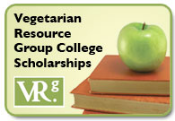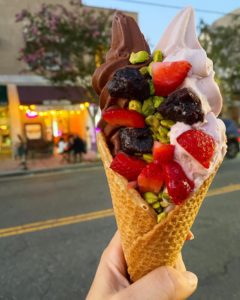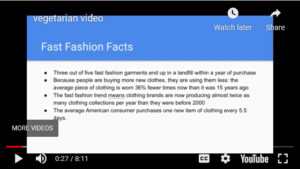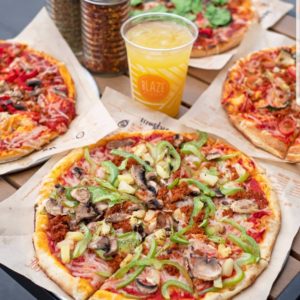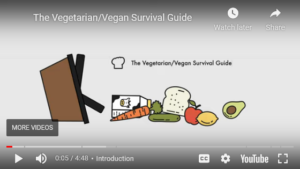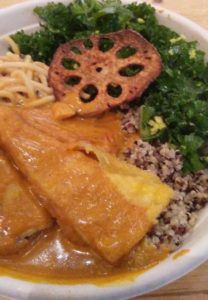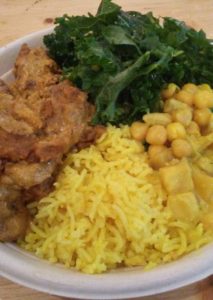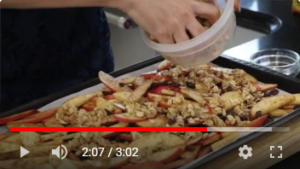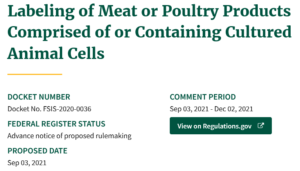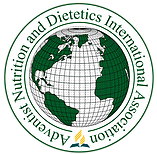Vegan Thanksgiving 2021– Meals and Events Being Offered in the USA!
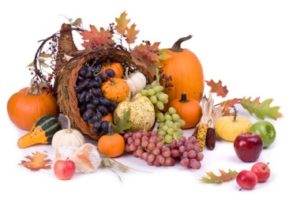
Below is a list of some of the restaurants, caterers, and groups offering vegan meals/potlucks for Thanksgiving (both before and on that day) alphabetically by state. If you’re looking for some new recipes to prepare for Thanksgiving, visit: http://www.vrg.org/recipes/vegan_thanksgiving.php
We wish you a very Happy and Healthy Thanksgiving!
ARIZONA
Soul Center, Mesa, AZ
https://www.meetup.com/VEGphx/events/281261576/
Green The American Vegetarian, Tempe, AZ
https://www.greenvegetarian.com/thanksliving2021
Loving Hut, Phoenix, AZ
https://www.meetup.com/VEGphx/events/281261508/
CALIFORNIA
Davis Food Co-op, Davis, CA
https://www.eventbrite.com/e/vegan-thanksgiving-sides-tickets-169731564679
Native Foods, Costa Mesa, Los Angeles, and San Diego, CA
Sugar Taco, Los Angeles, CA
https://sugartaco.com/los-angeles-sugar-taco-events
Raven’s Restaurant at The Standford Inn, Mendocino, CA
COLORADO
Native Foods, Glendale, CO
FLORIDA
Persimmon Hollow Brewing Company, Orlando, FL
https://allevents.in/orlando/vegan-thanksgiving-grateful-gathering/200021693632806
GEORGIA
Café Sunflower, Atlanta and Buckhead, GA
https://www.cafesunflower.com/thanksgiving/
Grey’s 5th Annual Vegan Thanksgiving, Fairburn, GA
https://www.rebelity.com/Events/v2/3000/greys-5th-annual-vegan-thanksgiving-lake-house-dinner
ILLINOIS
ChicagoVeg, Chicago, IL
https://www.meetup.com/ChicagoVeg/events/281302547/
Native Foods, Chicago, IL (loop)
MARYLAND
Land of Kush, Baltimore, MD
https://www.facebook.com/pg/TheLandofKush/menu/
One World Café, Baltimore, MD
https://www.facebook.com/One-World-Cafe-191474677552909/
NEW JERSEY
Bwè Kafe, Hoboken, NJ
https://www.eventbrite.com/e/friendsgiving-dinner-vegan-gf-tickets-182823117867
NEW YORK
Wild By Nature Market, various locations on Long Island, NY
https://wildbynature.com/2021-vegan-thanksgiving-menu/
NORTH CAROLINA
Triangle Vegetarian Society Thanksgiving Dinner in Durham, NC
https://www.trianglevegsociety.org/thanksgiving/
OHIO
Sunrise Sanctuary, Marysville, OH
https://www.sunrisesanctuary.org/contact-2/events/
PENNSYLVANIA
Meetup event, Lancaster, PA
https://www.evensi.us/vegan-thanksgiving-potluck-1712-judie-ln/422138910
Miss Rachel’s Pantry, Philadelphia, PA
https://www.missrachelspantry.com/thanksgiving-2021
Eden Café, Scranton and Wilkes-Barre, PA
https://www.facebook.com/edenavegancafe
TEXAS
VEGG, Austin, TX
https://www.veggaustin.com/popups
Vegetarian Society of El Paso, TX
VERMONT
Vine Sanctuary, Springfield, VT
https://www.facebook.com/events/238508358334484
WASHINGTON
Pasado’s Safe Haven, Sultan, WA
Plum Bistro, Seattle, WA
WASHINGTON, DC
DC Veg Society, Washington, DC
